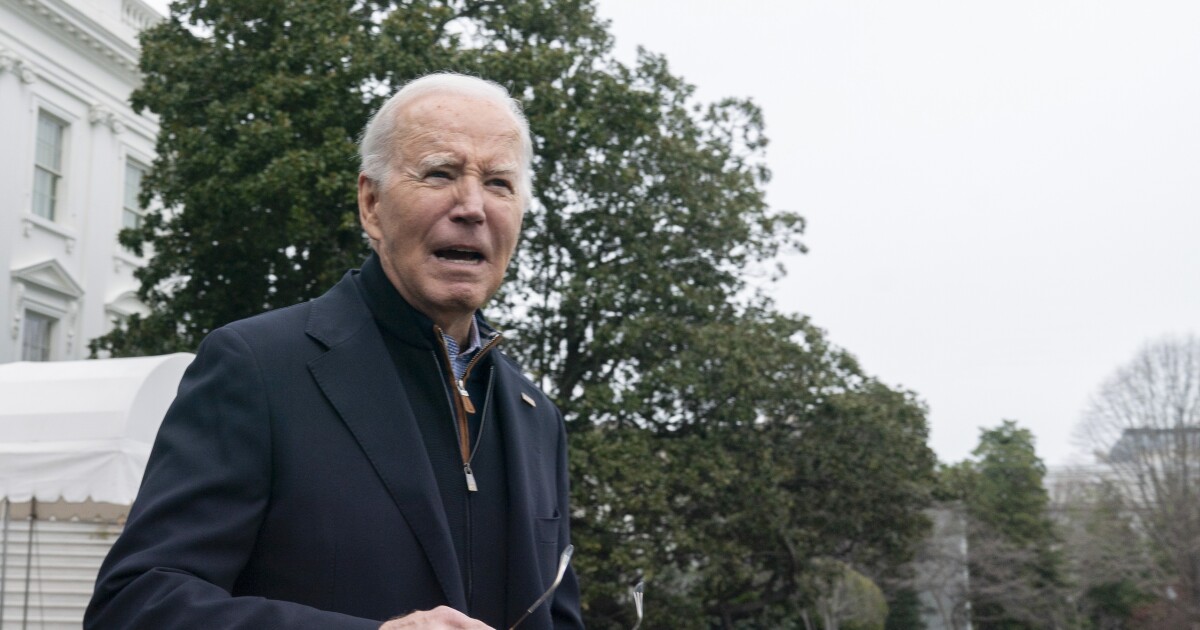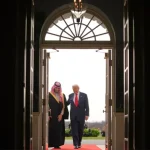

President Joe Biden’s global trade agenda appears dead on arrival with no chance to get off the ground as the nation enters the 2024 election season — and he has his party to blame.
A pillar of Biden’s economic plan was to sell “worker-centered” trade, but he failed to earn support from vulnerable Democrats who were worried that those workers would turn away from the party at the ballots over the measures. The president suffered several recent blows to his trade agenda after key Senate Democrats spoke out against the plan, worried it would harm workers and their own chances at reelection.
TWELVE DAYS OF WEX-MAS: ECONOMY — IS 2024 GOING TO BE THE YEAR OF THE RECESSION?
The most recent pushback against the president’s trade plans came in San Francisco during the Asia-Pacific Economic Cooperation meetings, during which Biden planned to unveil his trade initiative in the form of an economic pact with 13 other Indo-Pacific nations. The root of the plan was to use trade to raise labor and environmental standards, as opposed to former deals that incentivized outsourcing in exchange for lower standards.
However, at the last minute, Biden’s team pulled the trade part of the talks after final negotiations stalled, causing Sen. Sherrod Brown (D-OH) and other Democrats to express everything from concern to outright opposition to the proposal.
“There were some big concerns that we would be retreating back to the day where trade was a race to the bottom, especially for workers,” Sen. Tammy Baldwin (D-WI), who aided Brown in persuading Biden to drop the talks, told Politico. “And even if their framework wasn’t really a retreat on the progress we’ve made … the perception would be there.”
Though the president touted that the trade initiative would stanch the flow of jobs moving overseas, Democrats were worried the perception was that it wouldn’t, which is a matter of great concern to Democrats facing tough reelection campaigns this November. The worry is so great that the senators against the plan do not see an avenue for it to be revived despite Biden’s pledge to continue discussions on the topic this year.
“It’s gone,” Brown said about the trade portion of the Indo-Pacific deal. “They backed off it, so it’s done.”
Democrats especially took issue with the trade proposal once final negotiations at the APEC summit failed to come together. Some nations objected to the United States’s proposed labor and environmental standards without getting something in return from the U.S., but the U.S. would not budge.
“It’s not a secret that the United States, for a while now, has pushed for high standards in these areas and that some of our trading partners find that difficult,” a senior administration official said. “Even though that can be the case, the United States — especially under President Biden — is not going to back away from the importance of these things.”
However, Brown said he would rather have no trade deal than one lacking necessary labor and environmental protections.
“I want there to be trade between nations,” Brown said, adding, “I don’t want it to be about corporate giveaways and hurting workers.”
Sen. Ron Wyden (D-OR) also expressed his displeasure with the trade agenda, focusing on what he perceived as insufficient consultation on the Indo-Pacific economic agreement negotiations.
“I am going to oppose flawed trade proposals,” Wyden said. “And what we have seen thus far on trade is Congress being pushed to the side, and I consider that to be flawed.”
The stall in trade talks, plus the heavy criticism from Democrats typically on board with Biden’s agenda plans, is a major blow to the president, who has worked to establish a global trade agenda that supports the U.S.’s foreign interests without leading to domestic conflict.
Instead, the president has also seen a deadlock in discussions with the European Union over the tariffs that former President Donald Trump levied during his administration, a key matter among steel workers in the Midwest. The U.S. also appears to be taking a step away from a liberal trade pact that Biden floated to Latin American countries in 2022, opting instead for a more modest agreement.
CLICK HERE TO READ MORE FROM THE WASHINGTON EXAMINER
However, Biden’s team insists that the push for the president’s global trade agenda is not over yet. Despite the setback with the Indo-Pacific trade initiative, the U.S. successfully struck pacts regarding supply chains with Asia-Pacific nations, as well as anti-corruption and clean energy initiatives.
“I think that what we are encountering is a resistance to change and a slowness to coming to the realization of what we’re trying to do,” U.S. Trade Representative Katherine Tai told reporters after the Indo-Pacific talks collapsed. “But it’s happening.”





